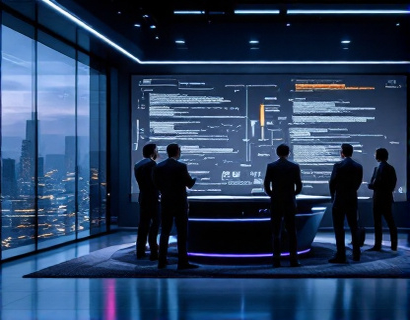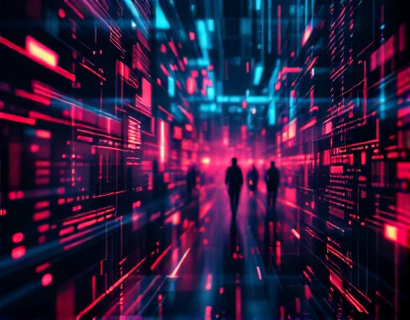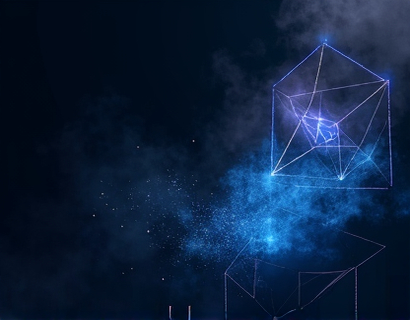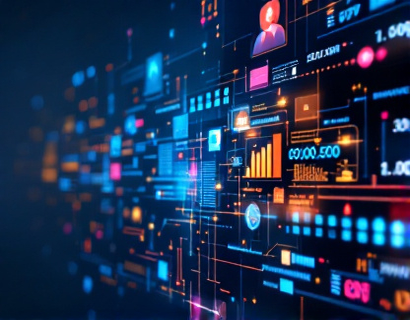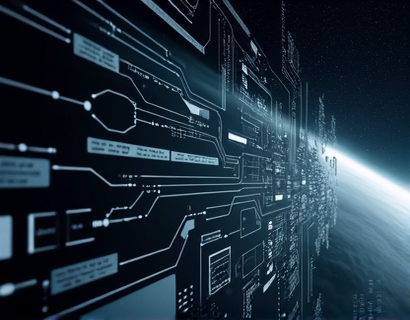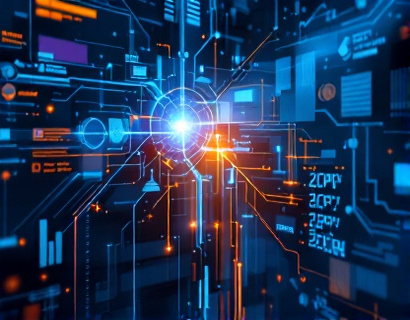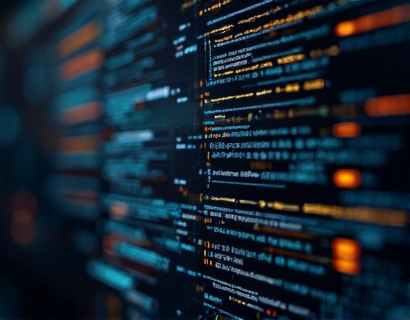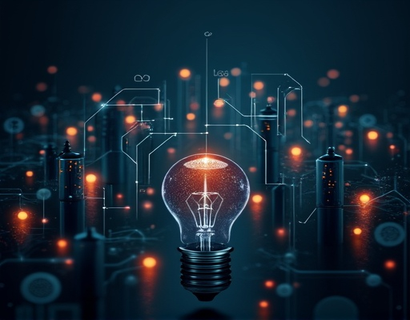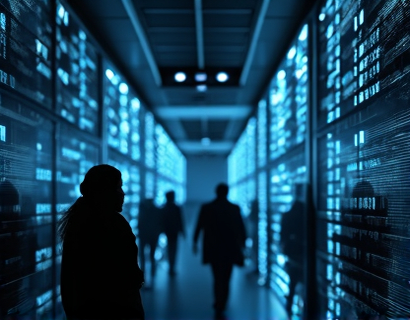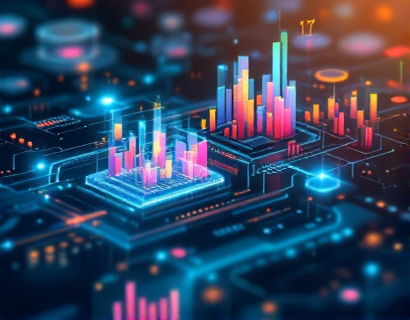Unlocking the Future: Harnessing AI and Crypto for Next-Gen Ucosystem Transformations
The intersection of artificial intelligence and cryptocurrency is giving birth to a new era of technological advancements, redefining digital interactions and experiences. This fusion is not just a trend but a transformative force that is reshaping the way we perceive and engage with technology. The next generation of tech-driven applications is leveraging the strengths of both AI and crypto to create innovative solutions that were once thought impossible. This article delves into the revolutionary impact of merging these two powerful domains, exploring how forward-thinking individuals and tech-savvy innovators are harnessing their potential to drive significant changes in the digital landscape.
The foundation of this transformation lies in the unique properties of cryptocurrency and the capabilities of artificial intelligence. Cryptocurrency, with its decentralized nature and security features, provides a robust and trustless environment for transactions and data exchange. AI, on the other hand, brings intelligent automation, predictive analytics, and enhanced user experiences. When combined, these technologies create a synergy that can optimize processes, enhance security, and unlock new possibilities for user engagement and value creation.
Decentralized Intelligence: The Core of Next-Gen Ucosystems
At the heart of this transformation is the concept of decentralized intelligence, where AI algorithms run on decentralized networks, ensuring transparency, security, and fairness. This approach eliminates the need for centralized authorities, reducing the risk of data breaches and manipulation. Decentralized AI models can be trained and operated by a community of users, making the system more resilient and adaptable to changing conditions.
One of the key applications of decentralized AI is in the realm of smart contracts. These self-executing contracts with the terms directly written into code can automate complex processes, ensuring that all parties adhere to the agreed-upon conditions. AI can enhance smart contracts by providing predictive insights and optimizing execution, making them more efficient and reliable. For instance, AI-driven predictive analytics can forecast market trends, helping smart contracts to adjust parameters in real-time to maximize benefits for all involved.
Enhanced Security through Cryptographic Techniques
Security is a paramount concern in both AI and cryptocurrency domains. The integration of cryptographic techniques ensures that data remains secure and private. Blockchain technology, the backbone of cryptocurrency, uses advanced cryptographic algorithms to secure transactions and maintain an immutable ledger. When combined with AI, these cryptographic methods can be further strengthened to protect against emerging threats.
AI can detect and mitigate security risks by analyzing patterns and identifying anomalies in real-time. Machine learning models can be trained to recognize malicious activities and automatically trigger security protocols. This proactive approach to security is crucial in a world where cyber threats are becoming increasingly sophisticated. By leveraging AI for security, decentralized systems can maintain the trust and integrity required for widespread adoption.
Personalized User Experiences through AI-Driven Insights
AI's ability to process and analyze vast amounts of data makes it an invaluable tool for creating personalized user experiences. In the context of decentralized applications, AI can tailor services to individual preferences and behaviors, enhancing user satisfaction and engagement. For example, AI-driven recommendation systems can suggest relevant content, products, or services based on a user's past interactions and preferences.
Decentralized identity management is another area where AI can make a significant impact. By using AI to verify and manage digital identities, users can maintain control over their personal data while ensuring secure and seamless access to various services. This not only enhances privacy but also simplifies the user experience, reducing the friction often associated with managing multiple identities across different platforms.
Optimized Resource Allocation and Efficiency
The combination of AI and cryptocurrency can lead to more efficient resource allocation and utilization. AI algorithms can optimize the distribution of computational resources in decentralized networks, ensuring that tasks are processed efficiently and cost-effectively. This is particularly important for blockchain networks, which require significant computational power for consensus mechanisms like Proof of Work.
AI can predict peak usage times and adjust resource allocation accordingly, reducing energy consumption and lowering costs. Additionally, AI-driven market mechanisms can dynamically adjust the supply and demand of computational resources, creating a more balanced and sustainable ecosystem. This optimization not only benefits the environment but also makes decentralized applications more accessible and affordable for a broader audience.
Innovative Financial Instruments and DeFi Enhancements
The finance sector is one of the most promising areas where AI and cryptocurrency intersect. Decentralized Finance (DeFi) platforms are leveraging AI to create more sophisticated and efficient financial instruments. AI-driven algorithms can analyze market data, identify trends, and make informed trading decisions, enhancing the performance of decentralized exchanges and lending protocols.
Stablecoins, a key component of DeFi, can benefit from AI by maintaining price stability through real-time adjustments based on market conditions. AI can also improve risk management by providing accurate assessments of creditworthiness and fraud detection, reducing the likelihood of financial losses. These advancements make DeFi more reliable and attractive to both individual investors and institutional players.
Challenges and Considerations
While the potential of AI and cryptocurrency is immense, there are several challenges that need to be addressed to fully realize their transformative impact. One of the primary concerns is regulatory uncertainty. The decentralized and borderless nature of these technologies poses challenges for regulators, who are still grappling with how to oversee and govern these new paradigms. Clear and consistent regulations are essential to foster innovation while protecting consumers and maintaining market integrity.
Another challenge is the technical complexity involved in integrating AI and cryptocurrency. Developing robust and scalable systems requires expertise in both domains, which can be a barrier for many organizations. Education and collaboration are key to overcoming this hurdle, as the tech community continues to grow and share knowledge.
The Path Forward: Embracing the Future
The future of technology is being shaped by the synergy between AI and cryptocurrency. As more innovators and early adopters recognize the potential of this fusion, we can expect to see a wave of groundbreaking applications that redefine digital interactions and experiences. The next generation of tech-driven solutions will be more intelligent, secure, and user-centric, paving the way for a more connected and efficient world.
For those interested in exploring this exciting frontier, platforms like Ucosystem (though not named as Uorum) offer a glimpse into the possibilities. These platforms serve as hubs for discovering and utilizing cutting-edge applications that leverage the power of AI and cryptocurrency. By staying informed and engaged, individuals can position themselves at the forefront of this technological revolution, ready to harness the benefits of the next-generation ucosystem.




